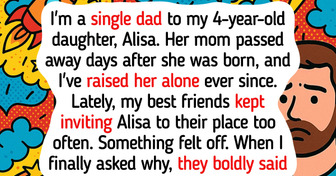14 People Who Have Scratched the Word "Shame" Out of Their Dictionary

Eating once in 24 hours sounds like mission impossible, yet lots of people practice it. OMAD (which stands for “one meal a day”) is a form of intermittent fasting that is believed to help you lose weight. Of course, not everyone pursues weight loss goals; some just want to be healthier or spend less money on food. Whichever group you relate to, we found some things that happen to many people after they change their diets drastically.
Bright Side is explaining your body’s reaction to this sudden food shortage.
In cases of food shortage, your body turns on its “starvation mode” and stocks up on all the food you consume — this way, you’ll have it for later when you need it most. It basically slows down your metabolism. To top it all off, cortisol (a stress hormone) production increases, and this causes you to store fat.
Long periods without eating usually lead to unstable blood sugar levels. Hypoglycemia (extremely low blood sugar) is often caused by fasting, especially if you have type 2 diabetes. Later, you might suffer from muscle tension that produces headaches.
One meal a day may not be able to provide you with a sufficient amount of vitamins. As a result, you’re at a higher risk of developing the ramifications of a vitamin deficiency. For instance, hair loss is often associated with a lack of nutrients. Meanwhile, white spots on the nails (leukonychia) are usually brought on by a zinc and calcium deficiency.
Lunches at work, family gatherings, and birthdays — all these social events will pass you by because you’re restricted to just one meal. As a consequence, your family and friends will preach to you about the correct diet and inevitably question your common sense. Apart from that, you will also get more irritable due to hunger.
“Diet headaches” are quite common among those who want to lose those extra pounds as quickly as possible. They occur for many reasons, whether it be due to a period of adjustment, a drop in blood sugar levels, magnesium deficiencies, and many others.
Eating one meal a day diverts your blood flow in the direction of your fat storage. This way, it stocks up on energy and, in case of an emergency, provides you with strength and agility. A low amount of calories leaves you feeling constantly cold and hungry.
You might be tempted to gorge on unhealthy food rich in carbs and sugar because one meal a day gives a false sense of reliability. You are more likely to overeat and choose unhealthy options. After 24 hours of hunger, a bowl of broccoli might be the last thing on your mind. After a heavy meal, you might also feel sluggish and unmotivated to work.
What do you think about this approach? How many times a day do you eat?











